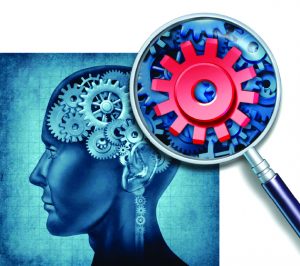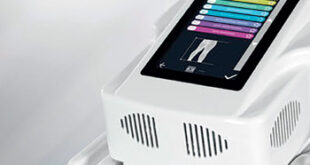By Renee Chillcott, LMHC
 Late nights, holiday food, visiting with relatives and financial strain may have caused the Holidays to be not quite joyful and bright, but now that it’s over and I am back to my routine, why do I still feel so anxious? I’m having trouble falling or staying asleep, I am obsessively thinking or worrying about things and I’m irritable or easily frustrated. My anxiety seems to sometimes be manageable and other times completely out of control and I may even be experiencing panic or anxiety attacks. Nothing seems to really make it better. What can I do?
Late nights, holiday food, visiting with relatives and financial strain may have caused the Holidays to be not quite joyful and bright, but now that it’s over and I am back to my routine, why do I still feel so anxious? I’m having trouble falling or staying asleep, I am obsessively thinking or worrying about things and I’m irritable or easily frustrated. My anxiety seems to sometimes be manageable and other times completely out of control and I may even be experiencing panic or anxiety attacks. Nothing seems to really make it better. What can I do?
Where do I start?
First, there is a difference between anxiety and stress. Anxiety is a pattern in the brain and stress (physical or emotional) is a condition caused by an external force. Second, Neurofeedback can help. Strong research evidence indicates that there are functional brainabnormalities associated with anxiety and panic disorder and posttraumaticstress disorder (PTSD). And Neurofeedback training corrects functional brain abnormalities. Simply put, Neurofeedback corrects the anxiety patterns in your brain, thus allowing you to handle stress with ease.
How does Neurofeedback work?
Neurofeedback, also known as EEG biofeedback, has been studied and practiced since the late 60’s. It is exercise for your brain; allowing you to see the frequencies produced by different parts of your brain in real-time and then through visual and auditory feedback, teaches the brain to better regulate itself. Neurofeedback can be used to help detect, stimulate, and/or inhibit activity in the brain safely and without medication. It can help restore a wider “range of motion” in brain states, much like physical therapy does for the body.Allowing you to be more “flexible” in stressful situations.
What do I have to do?
While the client sits comfortably watching a movie or pictures appear on a monitor (a calm and focused state), the EEG equipment measures the frequency or speed at which electrical activity moves in the areas where electrodes have been placed. This information is sent to the therapist’s computer. The therapist is then able to determine what frequencies are out of balance. For example, when the EEG shows that you are making too many “slow” or “sleepy” waves (delta/theta) in the center of the frontal lobe (Anterior Cingulate) you will experience worrying, obsessing, not being able to let things go; or if too many “fast” waves (high beta) are firing in the left temporal or parietal lobe, you will experience trouble sleeping, racing thoughts, panic attacks, physically unsettled. The therapist adjusts a reward band to encourage more balanced activity and this encouragement or “reward” happens through an auditory reinforcement of “beeps” and sometimes through visual reinforcement of changes on the screen.
What should I expect?
Mental clarity improves when you operate a calmer, more efficient brain. As you learn to slow down “inner chatter” or activate a “sleepy” brain, you become more effective at responding to stress and adapt more readily to different situations, both psychologically and physically. Parenting becomes less exhausting, appointments are more easily kept, decision-making improves, sleep improves, frustration reduces and mood swings and overwhelmed/depression lifts.
HOW DO I GET STARTED?
Getting started with Neurofeedback is fairly simple. Call, text, or email our office to set up an intake session. At the intake session, you will receive a clinical interview, treatment plan recommendations, and a Neurofeedback session.
Call to make an appointment today!
Renee Chillcott, LMHC
Renee Chillcott is a Licensed Mental Health Counselor that has been practicing Neurofeedback training since 2005. Renee attended The University of Central Florida where she received her Bachelor of Arts Degree in Psychology in 1995. She then went on to complete her Master’s Degree in Mental Health Counseling with Nova Southeastern University in 2001. She has been a mental counselor in a variety of settings including Outpatient Treatment Agencies, Alternative Education Settings, and Private Practice. Renee received her license in Mental Health Counseling in 2004. Renee decided to enter the field of Neurofeedback because there was very little information made available to people/parents about alternatives to medication. Through the use of Neurofeedback she saw more significant and permanent changes in not only her clients, but also her own family and herself. This inspired her to become the owner/operator of The Wellness Center, located in Boca Raton. At The Wellness Center, adults, teens, children and families enjoy a variety of services from multiple providers. Neurofeedback, Brain Mapping, Acupuncture, Nutritional Counseling, Learning Programs, and counseling are among a few of the services offered.
Check Also
Sensational News! The most powerful Hyper Pulsed Laser comes to Palm Beach County!
In an era where age-related lumbar spinal stenosis has reached epidemic proportions, a revolutionary treatment …
 South Florida Health and Wellness Magazine Health and Wellness Articles
South Florida Health and Wellness Magazine Health and Wellness Articles




